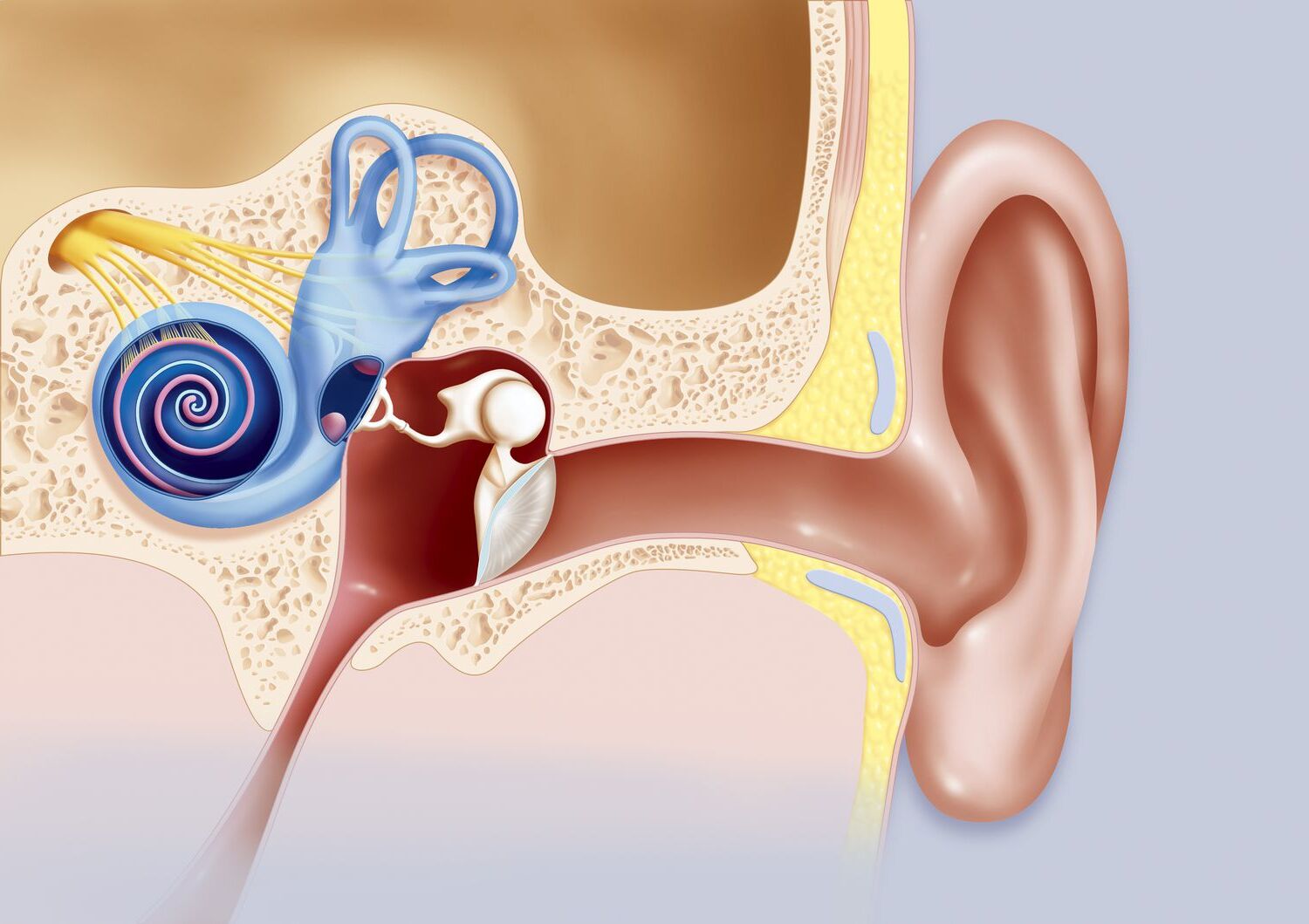
Acoustic neuroma is a rare, non-cancerous tumor that develops on the main nerve leading from the inner ear to the brain. This nerve influences balance and hearing, so pressure from an acoustic neuroma can cause hearing loss, ringing in the ear, and unsteadiness. Symptoms might be subtle at first, making it tricky to diagnose early. Treatment options vary, including monitoring, radiation, or surgery, depending on the tumor's size and growth rate. Understanding this condition is crucial for those affected and their loved ones. Here, we dive into 35 essential facts about acoustic neuroma to help you grasp its impact, symptoms, and treatments.
What is Acoustic Neuroma?
Acoustic neuroma, also known as vestibular schwannoma, is a non-cancerous tumor that develops on the main nerve leading from the inner ear to the brain. This nerve influences balance and hearing, and pressure from an acoustic neuroma can cause hearing loss, ringing in the ear, and unsteadiness.
- Acoustic neuromas are benign tumors, meaning they are not cancerous and do not spread to other parts of the body.
- These tumors grow on the vestibulocochlear nerve, which is responsible for transmitting sound and balance information from the inner ear to the brain.
- Acoustic neuromas are also known as vestibular schwannomas because they arise from Schwann cells, which form the myelin sheath around nerves.
- The exact cause of acoustic neuromas is unknown, but they are often associated with a genetic disorder called neurofibromatosis type II (NF2).
Symptoms of Acoustic Neuroma
The symptoms of an acoustic neuroma can vary depending on the size and location of the tumor. Here are some common symptoms to be aware of:
- Hearing loss in one ear is often the first symptom of an acoustic neuroma.
- Tinnitus, or ringing in the ear, is another common symptom.
- Balance problems and unsteadiness can occur as the tumor affects the vestibular nerve.
- Larger tumors can press on nearby cranial nerves, causing facial numbness or weakness.
- In rare cases, an acoustic neuroma can grow large enough to press on the brainstem, leading to life-threatening complications.
Diagnosis of Acoustic Neuroma
Diagnosing an acoustic neuroma typically involves a combination of hearing tests and imaging studies. Here are some key points about the diagnostic process:
- An audiogram is a hearing test that can detect hearing loss associated with an acoustic neuroma.
- Magnetic resonance imaging (MRI) is the most common imaging technique used to diagnose acoustic neuromas.
- Computed tomography (CT) scans can also be used, especially if MRI is not available or contraindicated.
- Early diagnosis is crucial for effective management and treatment of acoustic neuromas.
Treatment Options for Acoustic Neuroma
Treatment for acoustic neuroma depends on the size and growth rate of the tumor, as well as the patient's overall health and symptoms. Here are some common treatment options:
- Observation, or "watchful waiting," is often recommended for small, slow-growing tumors that are not causing significant symptoms.
- Stereotactic radiosurgery, such as Gamma Knife, is a non-invasive treatment that uses focused radiation to stop the growth of the tumor.
- Microsurgical removal is an option for larger tumors or those causing significant symptoms. This involves surgically removing the tumor through a small incision.
- The choice of treatment depends on various factors, including the patient's age, health, and preferences.
Potential Complications and Side Effects
While treatment for acoustic neuroma can be effective, it is not without potential complications and side effects. Here are some important considerations:
- Hearing loss is a common side effect of both surgery and radiation therapy for acoustic neuroma.
- Facial nerve damage can occur during surgery, leading to facial weakness or paralysis.
- Balance problems may persist even after treatment, especially if the vestibular nerve is affected.
- There is a risk of cerebrospinal fluid leakage after surgery, which may require additional treatment.
- In rare cases, radiation therapy can cause secondary tumors or other long-term complications.
Living with Acoustic Neuroma
Living with an acoustic neuroma can present challenges, but there are ways to manage symptoms and maintain a good quality of life. Here are some tips for coping with the condition:
- Regular follow-up appointments with a healthcare provider are essential for monitoring the tumor and managing symptoms.
- Hearing aids or cochlear implants can help improve hearing for those with hearing loss.
- Physical therapy and balance training can help manage balance problems and improve stability.
- Support groups and counseling can provide emotional support and help patients cope with the psychological impact of the condition.
- Maintaining a healthy lifestyle, including regular exercise and a balanced diet, can improve overall well-being.
Research and Advances in Acoustic Neuroma
Ongoing research is helping to improve our understanding of acoustic neuroma and develop new treatments. Here are some recent advances in the field:
- Advances in imaging technology are improving the accuracy of acoustic neuroma diagnosis.
- New surgical techniques are being developed to minimize complications and improve outcomes.
- Research is ongoing to develop targeted therapies that can specifically target tumor cells without affecting healthy tissue.
- Studies are exploring the genetic basis of acoustic neuroma, which could lead to new treatments and preventive strategies.
- Clinical trials are testing new drugs and treatment approaches for acoustic neuroma.
Acoustic Neuroma and Neurofibromatosis Type II
Neurofibromatosis type II (NF2) is a genetic disorder that is closely associated with acoustic neuroma. Here are some key facts about the relationship between NF2 and acoustic neuroma:
- NF2 is a rare genetic disorder that causes tumors to develop on nerves throughout the body, including the vestibulocochlear nerve.
- People with NF2 are at a higher risk of developing bilateral acoustic neuromas, meaning tumors on both sides of the head.
- Genetic testing can help diagnose NF2 and identify individuals at risk for developing acoustic neuromas.
Final Thoughts on Acoustic Neuroma
Understanding acoustic neuroma can make a big difference in managing this condition. These non-cancerous tumors, though rare, can impact hearing and balance. Early detection often leads to better outcomes. Regular check-ups and being aware of symptoms like hearing loss or balance issues are crucial. Treatments range from monitoring to surgery, depending on the tumor's size and growth rate. Advances in medical technology have improved treatment options, making them safer and more effective. Support from healthcare professionals and connecting with others facing similar challenges can provide comfort and guidance. Knowledge empowers patients and their families to make informed decisions. Stay proactive about health, and don't hesitate to seek medical advice if something feels off. Acoustic neuroma may be daunting, but with the right information and support, it becomes manageable.
Was this page helpful?
Our commitment to delivering trustworthy and engaging content is at the heart of what we do. Each fact on our site is contributed by real users like you, bringing a wealth of diverse insights and information. To ensure the highest standards of accuracy and reliability, our dedicated editors meticulously review each submission. This process guarantees that the facts we share are not only fascinating but also credible. Trust in our commitment to quality and authenticity as you explore and learn with us.


